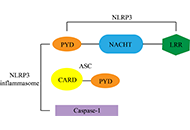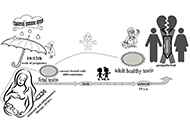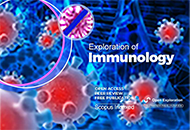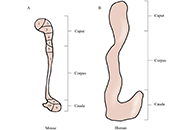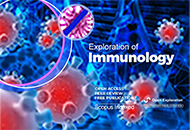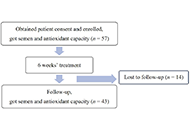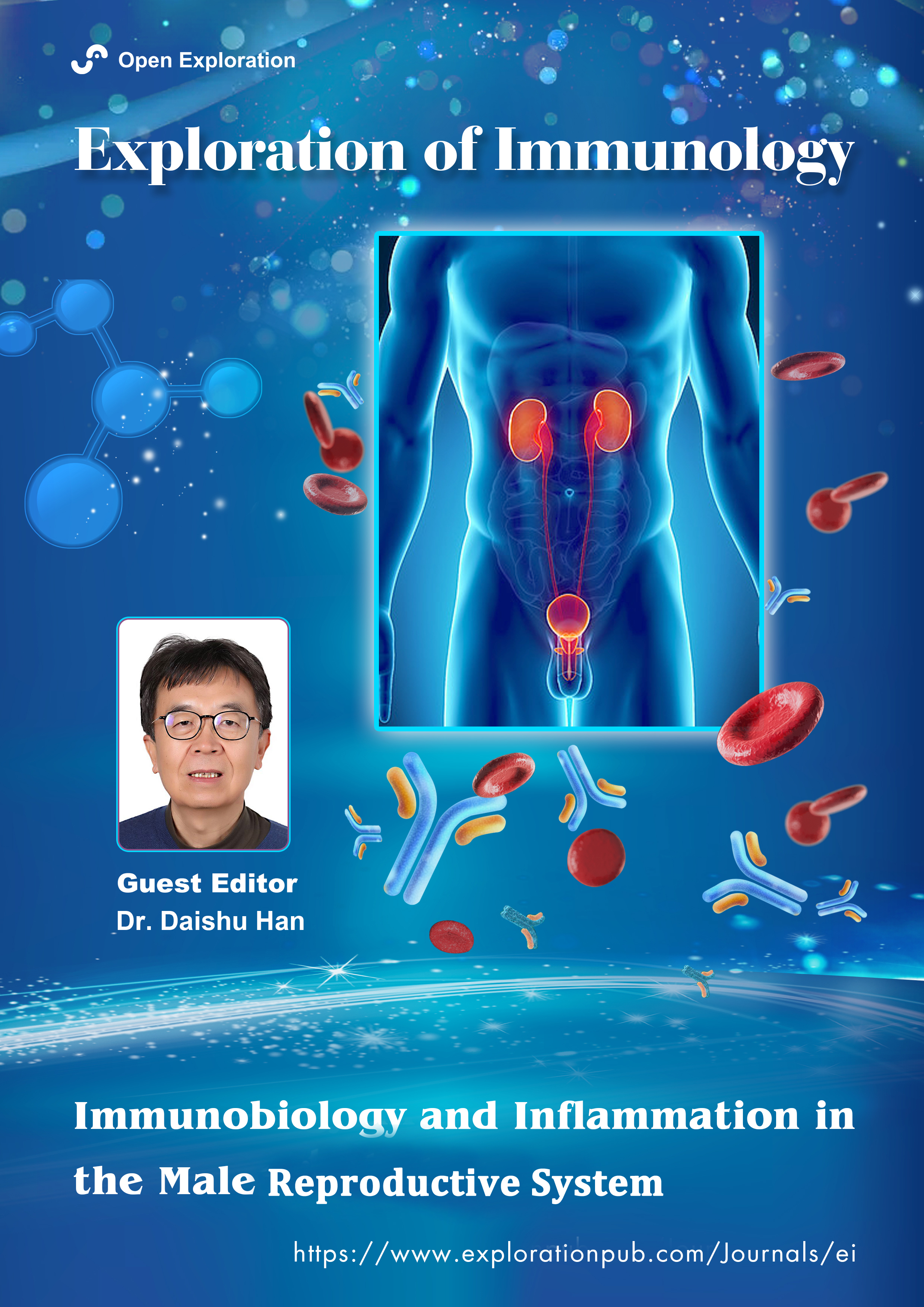
Immunobiology and Inflammation in the Male Reproductive System
Guest Editor
Dr. Daishu Han E-Mail
Professor, Department of Cell Biology, Institute of Basic Medical Sciences, Chinese Academy of Medical Sciences & Peking Union Medical College, Beijing, China
Research Keywords: Microbial infection, inflammation, male genital tracts, male fertility
About the Special lssue
The mammalian male reproductive system (MRS) is relatively isolated from other systems of the body considering its anatomical localization and highly organized microenvironment. The MRS is composed of several major organs with great variations in their functions and structures, which include genital glands (testis and epididymis), accessory sex glands (seminal vesicle, prostate, and bulbourethral glands), and penis. These organs are connected by various interlinked genital ducts, including vas deferens, ejaculatory ducts, and urethra.
The main function of the MRS is the maintenance of male fertility, which requires the orchestration of different organs that possess special microenvironment to perform respective functions. Remarkably, the MRS adopts special immunological environments for the protection of immunogenic male germ cells from autoimmune responses and the local innate defense against microbial infections. The testis is a typical immune-privileged organ essential for germ cell development. However, a broad spectrum of viruses has tropism for the testis to escape from systemic immune surveillance by hijacking testicular immune-privileged status. Moreover, numerous types of microbial pathogens, including bacterium, virus, mycoplasma, chlamydia, and parasite, can infect the MRS. To counteract the invading microbial organisms, the MRS is well equipped with local innate defense system. The mechanisms underlying immune privilege and local innate defense are noteworthy.
While the MRS adopts elaborate immune environments to avoid autoimmune response and counteract microbial infections, the infectious and autoimmune inflammations are frequently occurred in this system and may severely impair male fertility and life quality. The pathogenesis of the inflammation in individual organs of the MRS, particularly the testis, epididymis, seminal vesicle and prostate, is associated with their anatomical structure, immune environment and immunogenic pathogens. The mechanisms underlying the inflammation in the MRS are largely unclear, which impede the prevention and treatment of the diseases. Further basic researches in the field can aid in the development of preventive and therapeutic strategies of diseases.
This Special Issue aims to the current understanding of immune microenvironments, inflammatory diseases and therapeutic approaches in the MRS. The review and original articles in the fields are welcome to this special issue.
Keywords: Mammalian male reproductive system, inflammatory, immune microenvironments, therapeutic approaches
Published Articles
